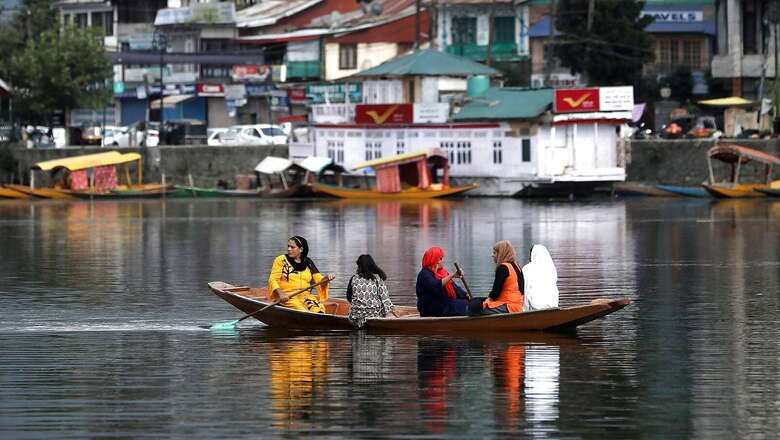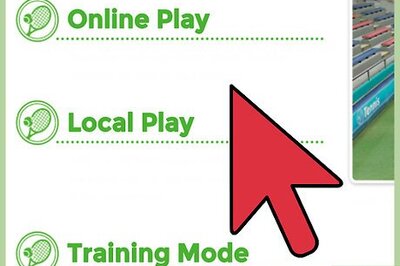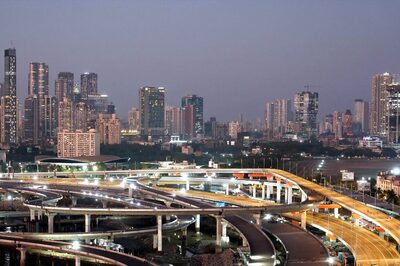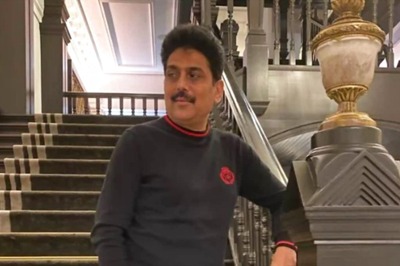
views
It was a warm afternoon of April 4, 1990, my uncle returned hastily from grocery shopping, his face was pale, and he was in shock. What he narrated after this sealed our fate forever.
He had read my father’s name on the terrorist ‘Hit List’ also known as Mukbir List (list of traitors) at the local Pujj (butcher shop). Later in the evening to reconfirm the same, my father’s name was found on a ‘Hit List’ pasted on the wall of the local mosque.
The entire family was in shock and panic. No one knew the next step. While most Kashmiri Pandits had left in January and continued to leave, we were holding on by threads. Now that the name was on the hit list, all threads were burnt.
We were in a free fall, free fall of emotions, fear, desperation and helplessness. However, a decision was to be made and there was very little time to do that. The choice was between getting killed and leaving, yet it was a hard one to make. After all it was our home! Who leaves home for a land unknown?
‘Desperate to Leave’
We lived in the outskirts of Srinagar; we built three houses in Bemina, one belonged to us, other two were my uncles’, just next to the river and perpendicular to it. The location was perfect, so far yet near to the city. There was a small brook that flowed behind the houses, which would act as an irrigation lifeline for fields that surrounded our houses.
Our house was last in the line, having an additional land parcel, on the right was a swathe of paddy fields and eventually one could see beautiful mountains on a clear day. The scene could put any renaissance painting to shame. When things started changing for Kashmiri Pandits, my family used to discuss, and I would imagine the worst. I was told if ever our house was attacked, I should run into those fields and try to keep myself safe. It was difficult for me to think about this, I used to be gripped with sadness of having to imagine someone would attack our home, and that I have to leave the house.
On that day in April, these discussions were turning to be true. Having our name on the hit list meant that day would not be far when someone would kill my father. Everyone in the extended family was convinced that time had come to leave. The decision to leave wasn’t an easy one, but at that moment every Pandit thought it was a matter of few months, that we would be back by November for the school exams.
Late that evening, dad and my uncles went to the nearby village to the home of our milkman and shared the decision to leave. They requested the milkman to arrange for transportation (a small public transport called matador). At 5 am the milkman and a few others came with the matador. We handed over the keys of the three houses and everything in them to the milkman. All family members boarded the matador with a couple of suitcases that had nothing but some clothes.
There was fear and urgency in that moment of departure. The neighbours, milkman, his family had a feeling of helplessness. We were all desperate to leave without being killed. We headed to Lal Chowk and from there boarded a KMD bus to Jammu.
‘Ordeal Had Just Begun’
In our mind, leaving Srinagar was temporary, so we decided to take refuge at the home of one of our relatives in Janipur. Once we reached, there was a sigh of relief. We were all alive, and that was an achievement in itself. Within a week to 10 days, we started to see the pressures of being a refugee in someone’s home. Living in someone else’s house for a long time wasn’t something we had ever done, and here in this case, we were already sapped by our fate.
Initially we were looking for an accommodation for the entire family—all 10 members. All searches came to nothing. No one was prepared to give accommodation to a large family. Eventually, my elder uncle’s family decided to stay put and now Mom and Dad were looking out for six members only. Mom and Dad kept going from place-to-place meeting relatives, acquaintances and knocking strangers’ doors. Finally, after a couple of weeks, one relative gave us a room in Talab Tillo. It was an outhouse with just one room which would be for six members.
Within a couple of weeks, it was clear that our ordeal had just begun. Jammu would prove to be a bigger challenge. No one was ready to help, no one even had a grain of sympathy. We had left with almost nothing. There were handful of clothes and that is it. Dad was a government servant; our household income was his salary. Few months went by, but his salary wasn’t paid. The small savings we had, had dried up, so now the questions were basic sustenance, food, rent, electricity, school fees.
One day we heard that someone is distributing relief material a few kms away in Talab Tillo. My cousins and I ran like crazy as if our life depended on it, perhaps it did to a great extent. We reached the spot and got a bucket, two blankets, one mosquito net, some soap bars for each of our families. In moments of despair this seemed to be a great win. We came back home happy, happy to have secured a few things for a room that was bare.
‘Survival was Name of the Game’
Compared to Srinagar, Jammu is extreme in temperature. We did not have a fridge or a cooler to make life a bit bearable. Six people shared a room, a small bathroom where one could barely stand, and a kitchen that would at best accommodate two people. A ceiling fan was all we had for relief from the weather and the heat from the stove. Each day passed in the hope that things would improve in Valley, and we would go back soon. Each day passed bearing extreme heat and desperation.
We had left school and education was one of the most important things for Kashmiri Pandits. No school could accommodate a significant rush of students. I got admission at St Peter’s School in Jewel Chowk. The catch was that my school would start at 2pm, bang in the middle of the day when mercury touched 45 degrees Celsius. Life started to take shape and with each passing day acceptance of our fate took a deeper root. School was cruel and so were the teachers, rather management of that school. The vice principal and some other teachers were openly biased. They did not like us, perhaps hated us. We kept our heads down and kept making it one day at a time.
My Nana and Nani who lived in a four-floor gigantic house in Habba Kadal, owned a silk factory, were now living in one small room. They had no access to salary or any money. They were getting government ration and a couple of thousand rupees every month as relief. In the years that followed, they changed houses 5-6 times. Each time the tenants would use some flimsy excuse to throw them out. With each passing year they were getting older and hopes of going back were replaced by waiting to get old enough and die.
Jammu wasn’t easy, it felt as if people were unkind, sadistic even; I won’t be diplomatic about it one bit. Landlords were sadists, school administration was outright biased. In the school, local boys were ever ready to tease Kashmiri Pandit girls on one pretext or another. They would be friendly at first and threatening eventually. In Kashmir, Muslims would use a slang—Batta—to address Kashmiri Pandits and in Jammu, Jammuites would often call us Lolay (cowards).
Very quickly I realised and learnt that survival was the name of the game. Make it through the day and the next and the one after that. This became a way of life, a way of life for 31 years now.
The author has worked with Paytm thrice in building their ecosystem and is currently Chief of Strategy at Vodacom Financial Services helping them build the first Super App on the African Continent. The views expressed in this article are those of the author and do not represent the stand of this publication.
Read all the Latest News, Breaking News and Coronavirus News here.


















Comments
0 comment